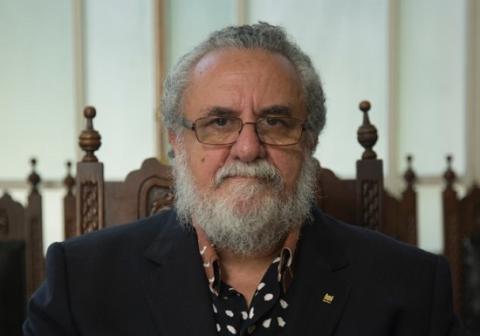
Wilson Savino: "Fiocruz and Sorbonne University have a solid past and a promising future."
Professor and immunologist Wilson Savino attaches particular importance to France and Sorbonne University. For several decades, this Brazilian has been working to develop partnerships between French health organisations and his employer, the Oswaldo Cruz Foundation (Fiocruz), a major biomedical science institution. Recently, the president of Fiocruz, Nísia Trindade Lima, and Nathalie Drach-Temam signed a brand new partnership agreement.
Can you explain to us what the Fiocruz Foundation is?
The Oswaldo Cruz Foundation is a public institution attached to the Brazilian Ministry of Health. It is a strategic institution with national scope, and with various research units in Rio de Janeiro and throughout the country. The foundation employs more than 10,000 people, including civil servants and contractual workers.
Fiocruz is a research institution in the biomedical sciences, but not only that! It also encompasses an educational component, by offering master's and doctoral degrees linked to research projects—particularly in infectious diseases—across over 40 master's and doctoral programs. While these diseases have historically been at the heart of our research and educational projects, we are increasingly focusing on metabolic diseases such as diabetes and obesity, as well as neurodegenerative diseases.
Fiocruz also has two hospitals in Rio, including one dedicated to infectious diseases. In 2020, it built a 200-bed hospital for patients with COVID-19 in 70 days. Based on our experiences with the influenza and Zika epidemics in the early 2000s, we had already developed a fairly effective rapid response mechanism, so we were more or less ready for this pandemic.
Finally, we have two production units: one for synthetic medicines, and another for the development of diagnostic kits and the production of vaccines. We produce 60-70% of all vaccines made in Brazil.
In 2019, you were awarded an honorary doctorate at Sorbonne University. You have a special relationship with the university.
Yes, I do! And I also have one with France. I arrived in your country in 1981 for a doctoral internship at the Necker Hospital and since then I have been working in partnership with French research institutions.
My history with Sorbonne University goes back some twenty years via the Institute of Myology when we both decided to join forces in immunology and myology. With this institute of the Faculty of Medicine, we have published many articles, and many students and young researchers have been able to do academic exchanges between our two countries.
Since last June, I have been advising the Fiocruz presidency on international strategy and leading health research partnerships with institutions including Sorbonne University. That is why I am here.
To tell you the truth, when I was awarded the honoris causa, Jean Chambaz (editor's note: president of Sorbonne University from 2017 to 2021) had already invited me to come over to strengthen the links between Sorbonne University and Fiocruz, and this has been maintained with Nathalie Drach-Temam. I now work between my native country and France, on the campus of the Faculty of Science and Engineering.
Tell us about the partnership agreement just signed between Sorbonne University and Fiocruz.
The two presidents of our respective institutions signed an agreement with the aim of expanding our existing cooperation, as well as jointly building a master's and doctoral program in health sciences with distinct components: biomedicine, public health, and human sciences. All, of course, within a joint research framework. This multidisciplinarity will accord health sciences a broader vision and will make it possible to create new types of collaboration with, for example, the creation of international research laboratories. We will of course organize colloquiums to give this kind of program more scope.
As part of Fiocruz's internationalization strategy, France is the first country to be chosen in Europe. A partnership with Mozambique, a member of the community of Portuguese-speaking Countries, has also been in place since 2008. Who knows, some day we could set up a Fiocruz office in France at Sorbonne University!
We certainly have a solid past and a promising future.

